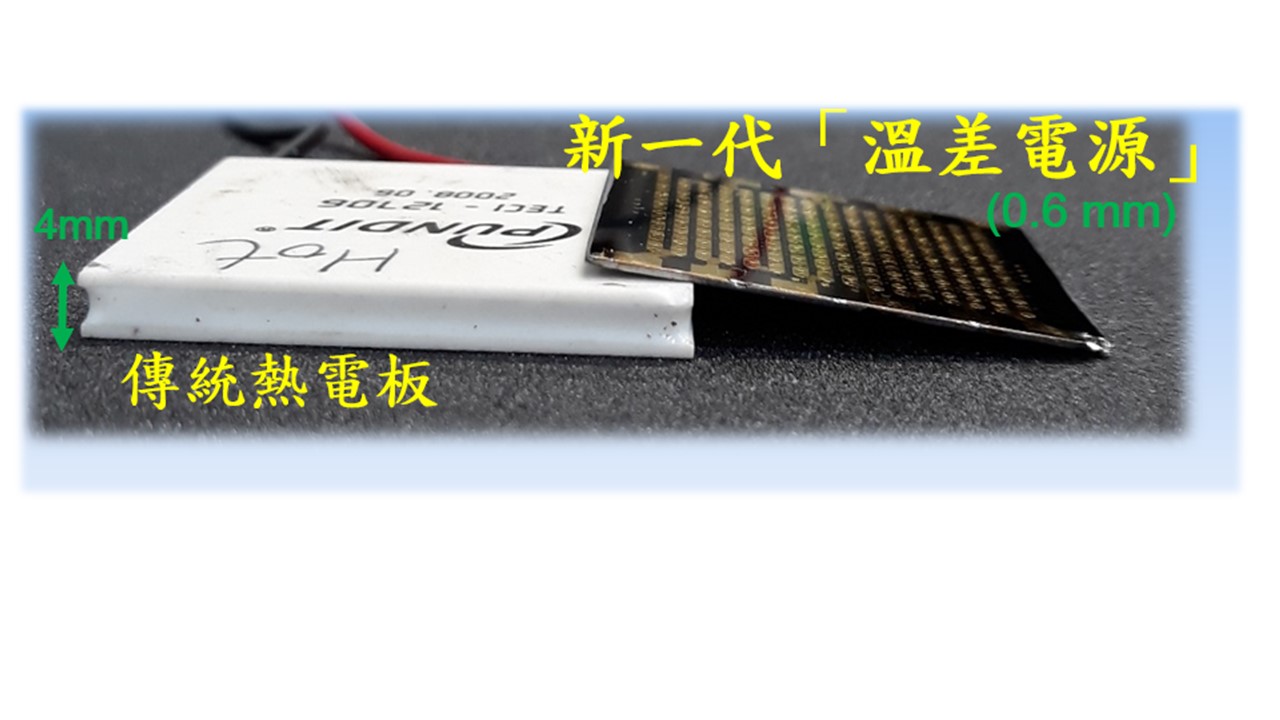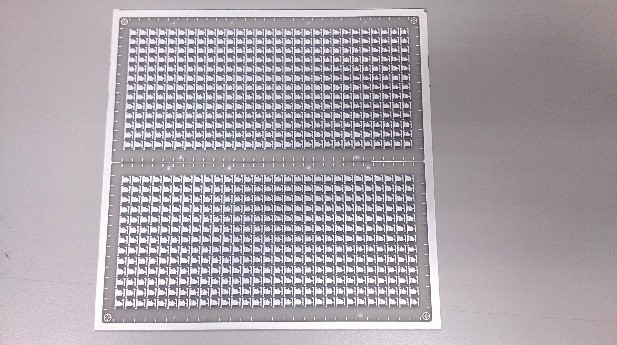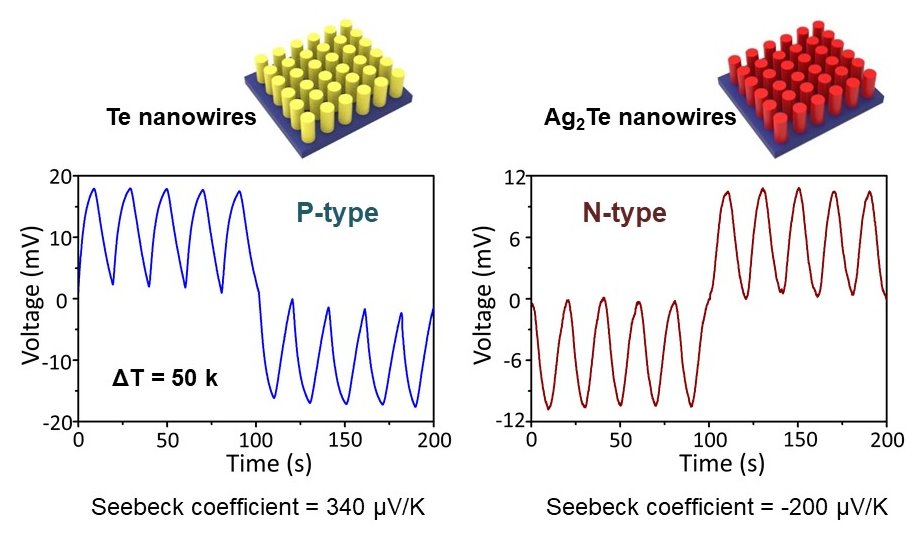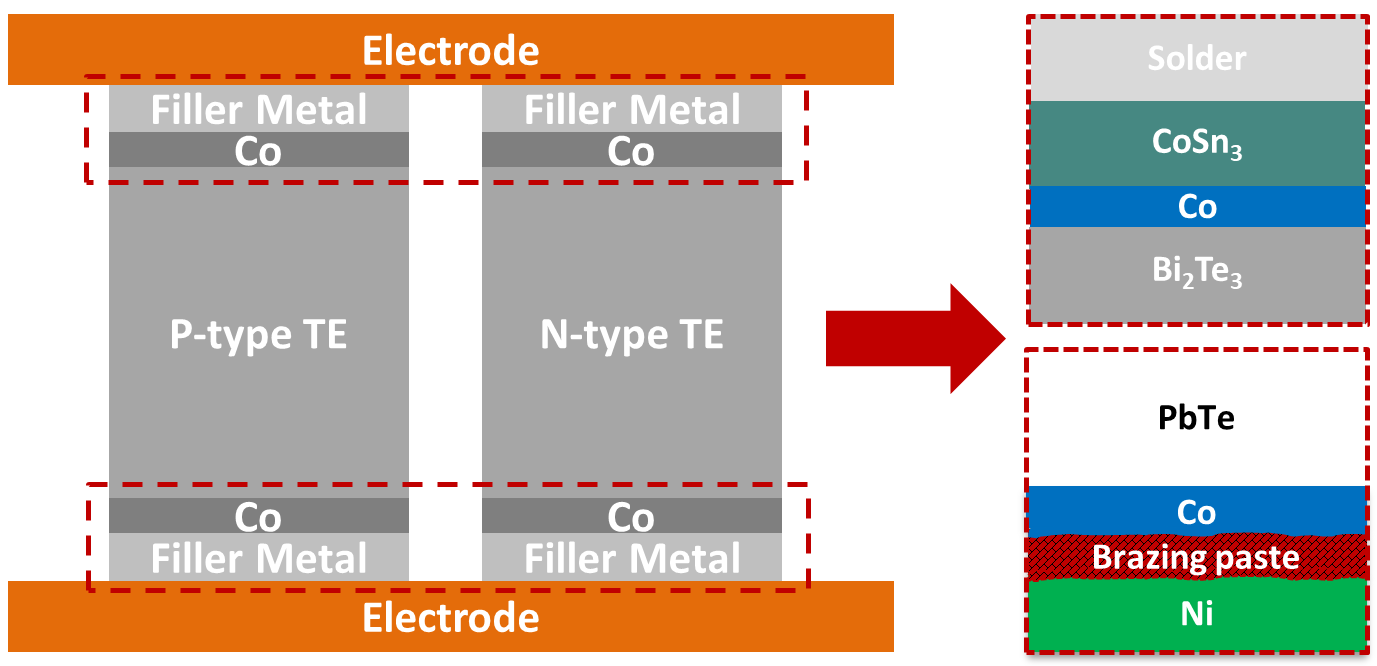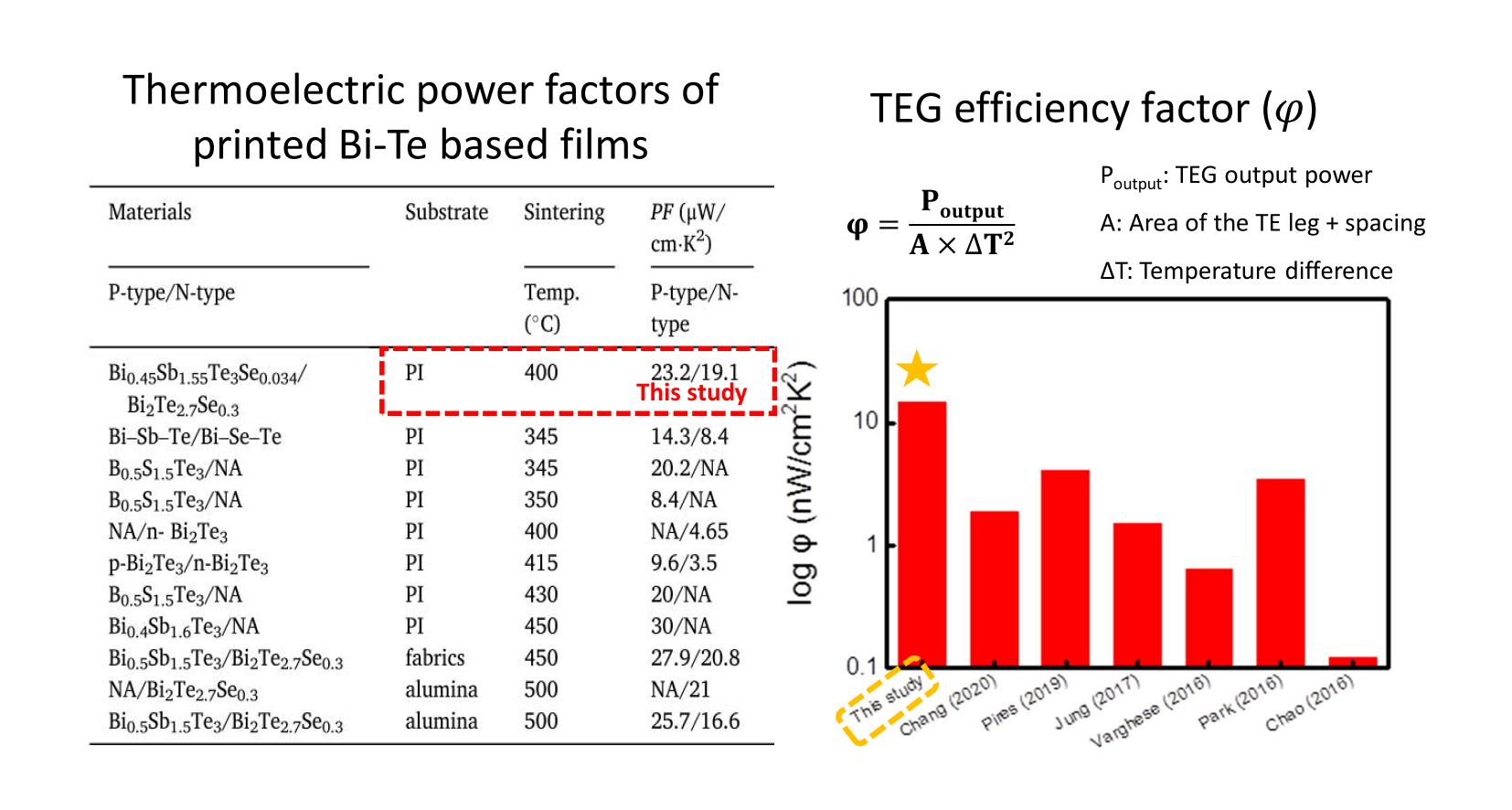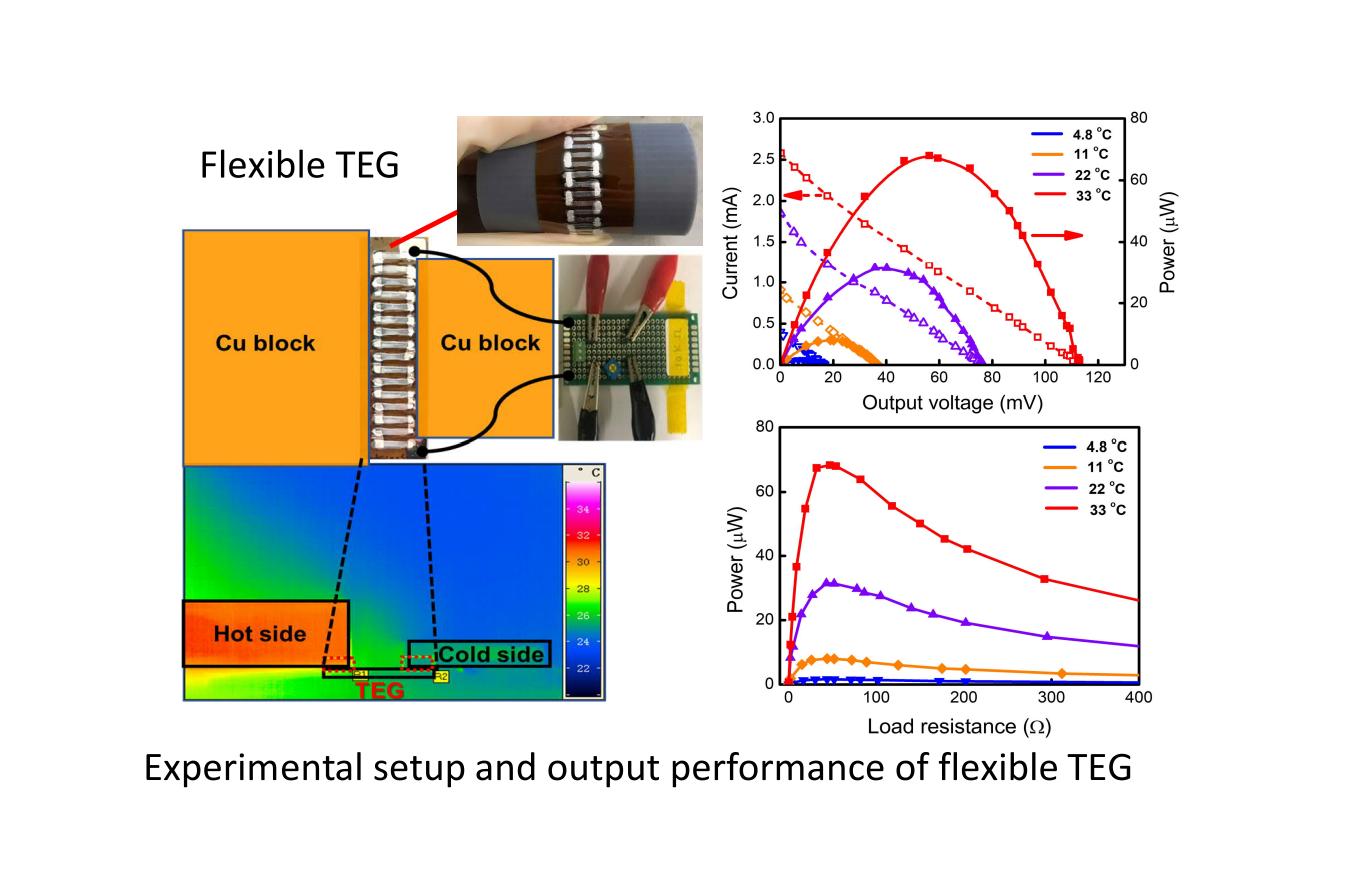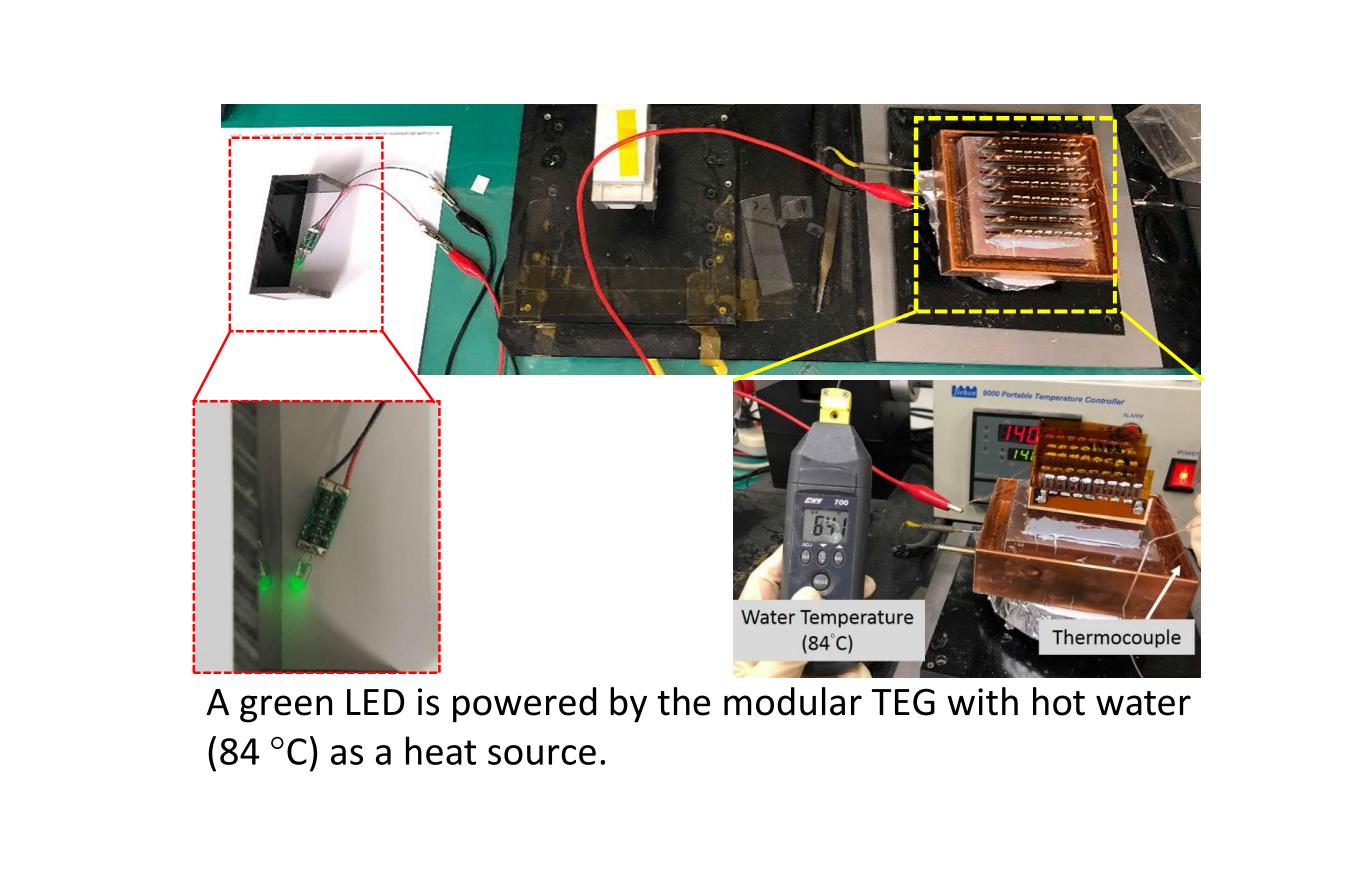| Technical Name | Flexible thermoelectric generators prepared by printing technology | ||
|---|---|---|---|
| Project Operator | National Tsing Hua University | ||
| Project Host | 廖建能 | ||
| Summary | A dispenser-printed thermoelectric generator (TEG) is fabricated on a flexible polyimide substrate to harvest environmental thermal energy to power low-power electronic devices. The recipes of thermoelectric ink compositionpressured sintering process are the cores of this presented TEG technology. The prototype flexible TEG exhibits high thermoelectric power factorsshows no performance degradation after 500 bending cycles. |
||
| Scientific Breakthrough | We have improved rheologyprintability of thermoelectric inks with well-dispersed thermoelectric powders. A pressured sintering process is optimized to enhance electrical conductivity of sintered thermoelements through porosity reduction. Table 1 (in Supplementary Information) lists the thermoelectric power factors of printed Bi-Te based thermoelements reported in recent publications. The polyimide substrate is suitable for the thermoelement sintered at the temperature 400 ℃ by considering both device flexibilitythermoelement property. Our results indeed outperform those sintered at the temperature below 450 ℃. |
||
| Industrial Applicability | Precision agriculture requires persistentreal-time monitoring of plant growth. A broad deployment of sensing devices for environment temperature, gas quality, humidity, water content in soil, …becomes essential. The μ-TEGs presented can be integrated with these sensors to be self-sustained real time monitors by retrieving heat from environment. Geothermal energy can be a perfect heat source for TEGs. Abundant heat from hot-spring can be used to activate the presented μ-TEG to power the abovementioned monitor devices. |
||
| Keyword | Thermoelectric generation Dispenser printing Flexible device Pressured sintering Geothermal energy Environmental sensing Self-powered devices Biomedical sensing Wearable device Wireless sensor network | ||
- Contact
- Chien-Neng Liao
- cnliao@mx.nthu.edu.tw
other people also saw

